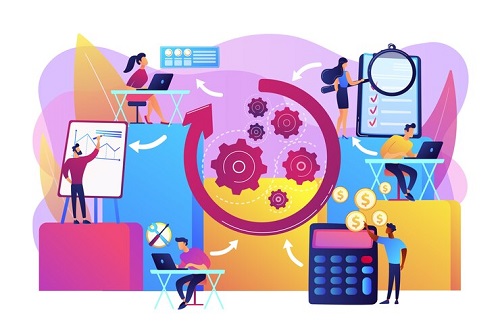In today’s fast-paced market, product development isn’t just about having an innovative idea; it’s about executing that idea efficiently and effectively. Partnering with professional consulting experts can be a game-changer, offering specialized knowledge, streamlined processes, and a fresh perspective that can elevate your product development to new heights.
The Role of a Professional Consulting Partner
What is a Professional Consulting Partner?
A professional consulting partner is an external expert brought in to provide specialized advice and solutions in various aspects of product development. These individuals or firms typically possess extensive experience and qualifications in their respective fields, ranging from engineering and design to marketing and project management.
Typical Qualifications and Areas of Expertise
Consulting partners often hold advanced degrees and certifications in their areas of specialization. Their expertise can span multiple domains, including:
- Market Analysis: Understanding market trends and consumer behavior.
- Technical Expertise: Deep knowledge of engineering principles and technologies.
- Project Management: Skills in planning, executing, and closing projects efficiently.
- Regulatory Compliance: Ensuring products meet industry standards and regulations.
The Importance of External Perspectives
An external perspective can be invaluable in product development. Consultants bring fresh eyes to your project, identifying potential pitfalls and opportunities that internal teams might overlook. Their unbiased viewpoint helps in making informed decisions, ultimately leading to a more robust and market-ready product.
Identifying and Overcoming Challenges
Common Challenges in Product Development
Product development is fraught with challenges, such as:
- Resource Constraints: Limited budget and manpower.
- Technical Hurdles: Complex engineering problems.
- Market Uncertainty: Unpredictable consumer preferences and market trends.
- Regulatory Barriers: Navigating complex compliance requirements.
Early Identification of Challenges
Consulting partners excel at identifying challenges early in the development process. They conduct thorough assessments and risk analyses to pinpoint potential issues before they escalate.
Strategies for Overcoming Obstacles
Consultants employ various strategies to overcome these challenges, such as:
- Prototyping and Testing: Rapid prototyping to validate concepts quickly.
- Agile Methodologies: Implementing agile practices to adapt to changes efficiently.
- Resource Optimization: Allocating resources effectively to maximize productivity.
Streamlining Processes for Efficiency
Analyzing and Optimizing Existing Processes
Consultants meticulously analyze your current processes to identify inefficiencies. They use data-driven approaches to recommend optimizations that can save time and resources.
Implementation of Best Practices and Methodologies
Consulting partners bring industry best practices and proven methodologies to the table. Whether it’s Lean, Six Sigma, or Agile, these practices help in creating a more efficient workflow.
Case Studies of Improved Efficiency
Consider a tech startup that partnered with a consulting firm to streamline its product development process. By implementing agile methodologies and optimizing resource allocation, the startup reduced its development cycle by 30%, allowing for quicker market entry and increased competitiveness.
Enhancing Innovation and Creativity
Fostering a Culture of Innovation
Consultants play a crucial role in fostering a culture of innovation within your organization. They encourage creative thinking and facilitate brainstorming sessions to generate new ideas.
Techniques to Stimulate Creative Thinking
Some techniques used by consultants include:
- Design Thinking Workshops: Encouraging a user-centric approach to problem-solving.
- Innovation Labs: Creating dedicated spaces for experimentation and idea generation.
- Cross-Functional Teams: Bringing together diverse skill sets to spark creativity.
Examples of Innovative Products
A notable example is a consumer electronics company that collaborated with a consulting firm to develop a groundbreaking wearable device. The consultants introduced new materials and technologies, resulting in a product that set new industry standards for innovation and functionality.
Access to Specialized Knowledge and Tools
Specialized Knowledge
Consultants bring specialized knowledge that might not be available in-house. This includes expertise in emerging technologies, market trends, and regulatory landscapes.
Advanced Tools and Technologies
Consulting partners often have access to advanced tools and technologies, such as:
- Simulation Software: For virtual testing and validation.
- Data Analytics Tools: For market analysis and consumer insights.
- Project Management Software: For efficient tracking and execution.
Accelerating Development Timelines
By leveraging these resources, consultants can significantly accelerate development timelines. For instance, a pharmaceutical company reduced its product development time by 20% by utilizing advanced simulation software provided by its consulting partner.
Risk Management and Quality Assurance
Importance of Risk Management
Effective risk management is critical in product development to avoid costly setbacks and ensure a smooth path to market.
Identifying and Mitigating Risks
Consultants help identify potential risks early and develop mitigation strategies. This includes conducting risk assessments, creating contingency plans, and implementing robust quality assurance processes.
Ensuring Product Quality and Compliance
Consulting partners ensure that your product meets all quality and regulatory standards. They conduct thorough testing and validation to guarantee compliance, thereby reducing the risk of product recalls and legal issues.
Building a Collaborative Partnership
Importance of Collaboration
Successful product development requires seamless collaboration between internal teams and consulting partners. This synergy ensures that all stakeholders are aligned and working towards common goals.
Tips for Effective Communication
- Regular Updates: Schedule frequent meetings to discuss progress and address issues.
- Clear Roles and Responsibilities: Define roles clearly to avoid confusion and overlap.
- Open Feedback Channels: Encourage open communication to facilitate feedback and improvements.
Success Stories of Collaborative Projects
A software company successfully launched a new application by collaborating closely with a consulting firm. Through regular updates and open communication, they were able to address challenges promptly and deliver a high-quality product on time.
Maximizing ROI with Consulting Services
Cost-Benefit Analysis
Hiring a consulting partner might seem like an added expense, but the benefits often outweigh the costs. Consultants help optimize resources, reduce time-to-market, and improve product quality, leading to a higher return on investment (ROI).
Achieving Faster Time-to-Market
Consultants streamline processes and introduce efficiencies that enable faster product launches. This speed can be a critical competitive advantage in fast-moving markets.
Metrics Demonstrating Improved ROI
Consider a manufacturing company that partnered with a consulting firm to optimize its production process. The result was a 25% reduction in production costs and a 15% increase in product quality, leading to a significant boost in ROI.
Future-Proofing Your Product Development
Anticipating Future Trends and Market Demands
Consultants help you stay ahead of the curve by anticipating future trends and market demands. Their insights enable you to adapt your product development strategy proactively.
Continuous Improvement and Adaptability
Consulting partners advocate for continuous improvement and adaptability. They help you implement feedback loops and iterative processes to refine your product continuously.
Maintaining Long-Term Relationships
Building long-term relationships with consulting partners can provide ongoing benefits. These relationships foster trust and collaboration, ensuring that you have expert support whenever needed.
Partnering with professional consultants can transform your product development process, making it more efficient, innovative, and successful. By leveraging their expertise, tools, and fresh perspectives, you can overcome challenges, streamline processes, and ultimately deliver superior products to market.



